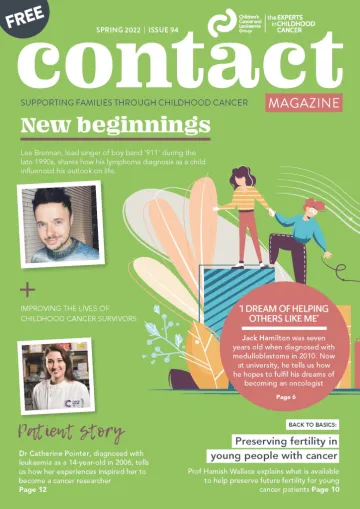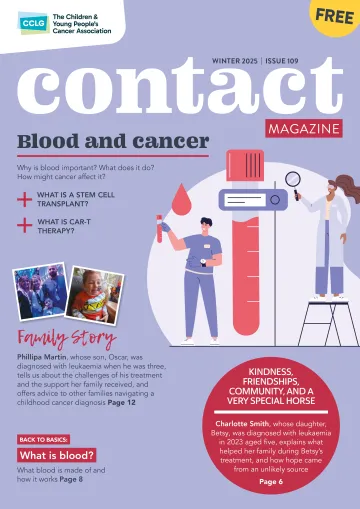Dr Rachel Cox, is a consultant paediatric oncologist and Chair of CCLG’s Late Effects Group. She tells us what late effects are, and how the work of the group is helping to improve the quality of life for survivors of childhood cancer.
There are over 35,000 survivors of childhood cancer living in the UK today and this number is growing. Through the shared experiences of survivors and long-running research studies comes the knowledge of the impact of cancer treatment, known as ‘late effects’. As more and more young people survive their cancer, this knowledge continues to grow.
What are late effects?
Late effects can be physical, occurring in any organ or body system, or psychological. They can occur because of the cancer, its treatment, related illness, an underlying condition or because of treatment-related complications. Risks of treatment are discussed with parents at the time of consent and are monitored or screened for when treatment ends. Late effects monitoring for any survivor can be predicted by knowledge of their treatment – ‘treatment summary’ - and should be planned for according to an individual ’care plan’.
Who supports patients with late effects?
The role of the late effects or aftercare team is to help hand over information, learnt by the parents at the time of consent for treatment, to teenage and young adult cancer survivors to empower them to look after their future health. They provide a monitoring plan for late effects, promote healthy lifestyle choices and provide a key point of contact for survivors for advice about future problems. Education and signposting for both survivors and other healthcare professionals they may meet throughout life is a particularly crucial role. To deliver survivor support, late effects teams throughout the UK offer flexible methods of contact through email, telephone, and more traditional clinic appointments. The late effects nurse is pivotal in this role.
About the CCLG Late Effects Group.
The CCLG Late Effects Group was formed over 20 years ago to provide a voice for professionals involved in delivering care for or studying the late effects of treatment across the UK. Membership of the group is varied and includes survivors, doctors, nurses, allied healthcare professionals, scientists, and trainees, all of whom have a passion for improving life after childhood cancer.
The group aims to share and promote best practice in the UK, to advocate for and empower survivors of childhood cancer locally, through team members’ clinical practice, nationally and internationally through links to PanCare, our European partners, and to assist in development of high-quality international guidance through the International Guideline Harmonization Group.
The group provides high-quality education for healthcare professionals (free to CCLG members) through a lecture programme and promotes research to improve the long-term health outcomes of childhood cancer survivors. A series of virtual talks for survivors is planned for 2023.
"Late effects can be physical, occurring in any organ or body system, or psychological."
The impact of cancer treatment on fertility is one of the most common and important concerns raised by adult survivors of childhood cancer and group members have been instrumental, together with experts in fertility preservation, in developing new guidance for treating teams to preserve the fertility where possible of children currently undergoing treatment.
Above all, the group members are stimulated by the experiences of young people and adults under their care. They listen to their achievements, their hopes, dreams and fears and use those experiences to help others. The group would welcome other survivors of childhood cancer who wish to offer their time or experiences in ways that would benefit the community.
From Contact magazine issue 94 - Spring 2022


